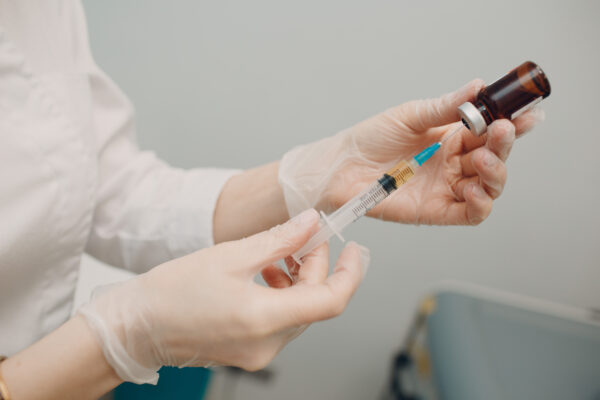
Phlebotomists must spend further training, certification, and licensure in order to collaborate with dermatologists, plastic surgeons, and other aesthetic professionals.
Medical assistants with training in blood collection are known as phlebotomists. They might be permitted to collect other kinds of medical samples and carry out simple lab procedures in certain circumstances.
Depending on the situation, phlebotomists are under the direction of a registered nurse, a doctor, or another qualified medical practitioner. Though certification is required in most areas, the licensing process is typically less onerous for these professionals than it is for nurses, PAs, and MDs.
Patients, as well as providers unfamiliar with phlebotomy, frequently ask whether or not a phlebotomist can also administer injections.
Injectables: Can a Phlebotomist Do It?
In most cases, phlebotomists are not qualified to administer injections.
Phlebotomists receive specialized education and are typically licensed to do nothing but draw blood from patients.They are permitted to prepare and dress the treatment area and take blood for a virtually limitless number of medical examinations and procedures, but they are not permitted to administer any injections to the patient.
Phlebotomists may work with or report to aesthetic nurses or registered nurses who have completed specialized training to be able to provide injections. Additionally, in some circumstances, only specially trained phlebotomists may provide injections.
Work Responsibilities of a Phlebotomist
The primary duties of a phlebotomist include taking blood and other fluid samples from veins and preparing them for laboratory analysis. Some obligations include:
- educating patients about the treatment they will soon undertake
- taking precautions to prevent infection by prepping the skin around the drawing area
- locating a healthy vein for blood collection
- collecting blood
- preparing and organizing blood samples for delivery to a lab
- Cleaning and organizing the clinical spaces for which they are accountable
- taking care of any paperwork and data entry as necessary
Notably absent from this list is anything related to administering injections. Most phlebotomists lack the necessary credentials to administer injections. If this happens, the provider and their supervisor may face disciplinary action, regulatory action, or even legal action.
There may be exceptions to this rule for people who have received adequate training. Certified phlebotomists with additional training and education can do more for their patients, such as
- Blood collection from arteries, a more dangerous procedure than vein collection.
- Nursing duties including preparing and connecting IV drips
- Administering injections with a hypodermic syringe
Phlebotomy License and Education Requirements
State-by-state variations exist in phlebotomy license requirements. They are less extensive than those for nurses and other medical specialists, and a large portion of phlebotomists’ actual training takes place on the job.
Can a phlebotomist administer cosmetic treatments?
Phlebotomists are not qualified to administer Botox® or dermal fillers because such procedures call for specialized training and education. Even those who have received specialized training for injections will typically steer clear of performing subcutaneous procedures such as these and instead concentrate their efforts on administering intramuscular injections, such as vaccines.
Phlebotomists who are interested in working with dermatologists, plastic surgeons, and other aesthetic specialists are required to invest in additional education, certification, and licensing in order to do so.
Opportunities for Professional Advancement Open to Phlebotomists
Beginning their careers in the medical field as phlebotomists, a significant number of people eventually advance their careers to become nurses, physician assistants, or even physicians.
Becoming a registered nurse and then enrolling in master injector training through an accredited aesthetic medical education provider is the most straightforward route for individuals who are interested in administering cosmetic injections. Nurses-to-be learns how to administer a wide variety of injections, but the curriculum doesn’t drill down into the finer points of the methods and supplies used in non-invasive cosmetic procedures.
With Dentox, aesthetic specialists can learn how to inject Botox and dermal fillers in a safe and effective way. One of the most well-known injectable trainers in the country is Dr. Howard Katz. He offers his students a variety of learning options, including in-person, online, and on-demand classes. For access to online courses and live courses featuring actual patients, go to https://dentox.com/live-courses/ and https://dentox.com/all-courses/botox-training/, respectively.







